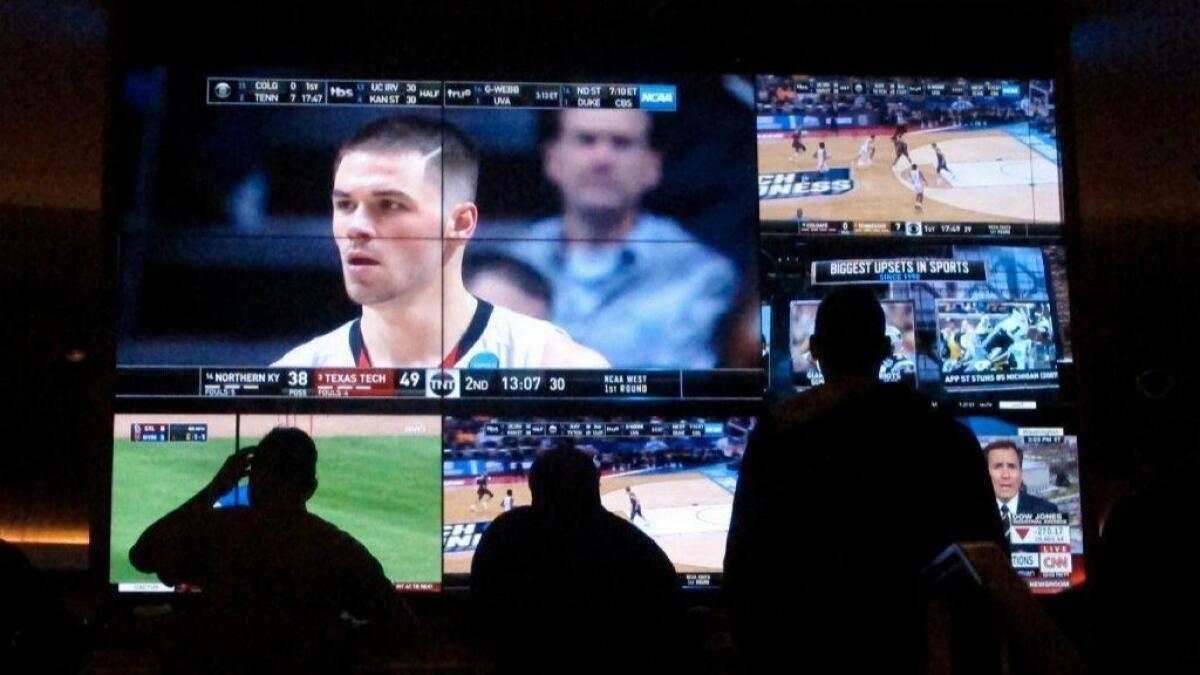California college athletes could sign endorsement deals under bill OKd by state Senate

Reporting from Sacramento — College athletes in California would be able to sign with agents and profit from endorsement deals under a bill that cleared the state Senate on Wednesday, prompting a potential showdown with the National Collegiate Athletic Assn., which bars such compensation.
Senate Bill 206 by state Sen. Nancy Skinner (D-Berkeley) passed the Senate 31-4 and now heads to the Assembly for consideration in the coming months.
Skinner said universities and their coaches are raking in millions of dollars and the NCAA nets billions a year from collegiate sports — while athletes are barred from accepting any compensation beyond tuition, school fees, room and board and small cost-of-living stipends.
Skinner said her bill would treat college athletes the same as those who compete in the Olympics and give collegiate players an opportunity to “earn income from their talent” while retaining their amateur status.
In recent years, the NCAA has been the target of lawsuits, legislation and scrutiny stemming from the financial arrangement they have with athletes and the relatively small amount of money that is fed back into sports scholarships.
“Olympic athletes are also considered amateur, so this does not professionalize our college athletics and may in fact result in encouraging some of our students to stay in school rather than the motivation to go pro early because it’s the only way to earn an income,” Skinner said.
SB 206 would allow student athletes at public and private universities and colleges to earn money from the use of their name, image or likeness in endorsement deals starting in 2023. The bill would not allow the schools to directly pay athletes.
Skinner said the issue is particularly pressing for women athletes, who have fewer professional sports opportunities after college and typically have just one chance to profit from their talent. The bill would bar schools from offering sponsorship deals to high school students as a recruitment tool.
“These men and women put butts in seats of arenas and stadiums all across the country and the universities make millions of dollars selling their jerseys and other paraphernalia … but these athletes benefit not one dime,” state Sen. Steven Bradford (D-Gardena) said. “This is a civil rights issue. This is a fairness issue.”
But the bill has raised questions about how the NCAA would treat California collegiate sports programs if their teams were to violate the body’s rules should SB 206 become law. That has prompted concerns from the California State University system, University of California, USC and Stanford University, which are all opposed to the bill.
Sen. John Moorlach (R-Costa Mesa) said the bill could result in California schools being excluded from the NCAA, which he said would hurt the prospects of athletes at those schools even more.
“We have a chess game going on,” Moorlach said. “What does this do for the students we are trying to assist?”
Follow @MelodyGutierrez on Twitter and sign up for our Essential Politics newsletter.
More to Read
Get the L.A. Times Politics newsletter
Deeply reported insights into legislation, politics and policy from Sacramento, Washington and beyond. In your inbox three times per week.
You may occasionally receive promotional content from the Los Angeles Times.











